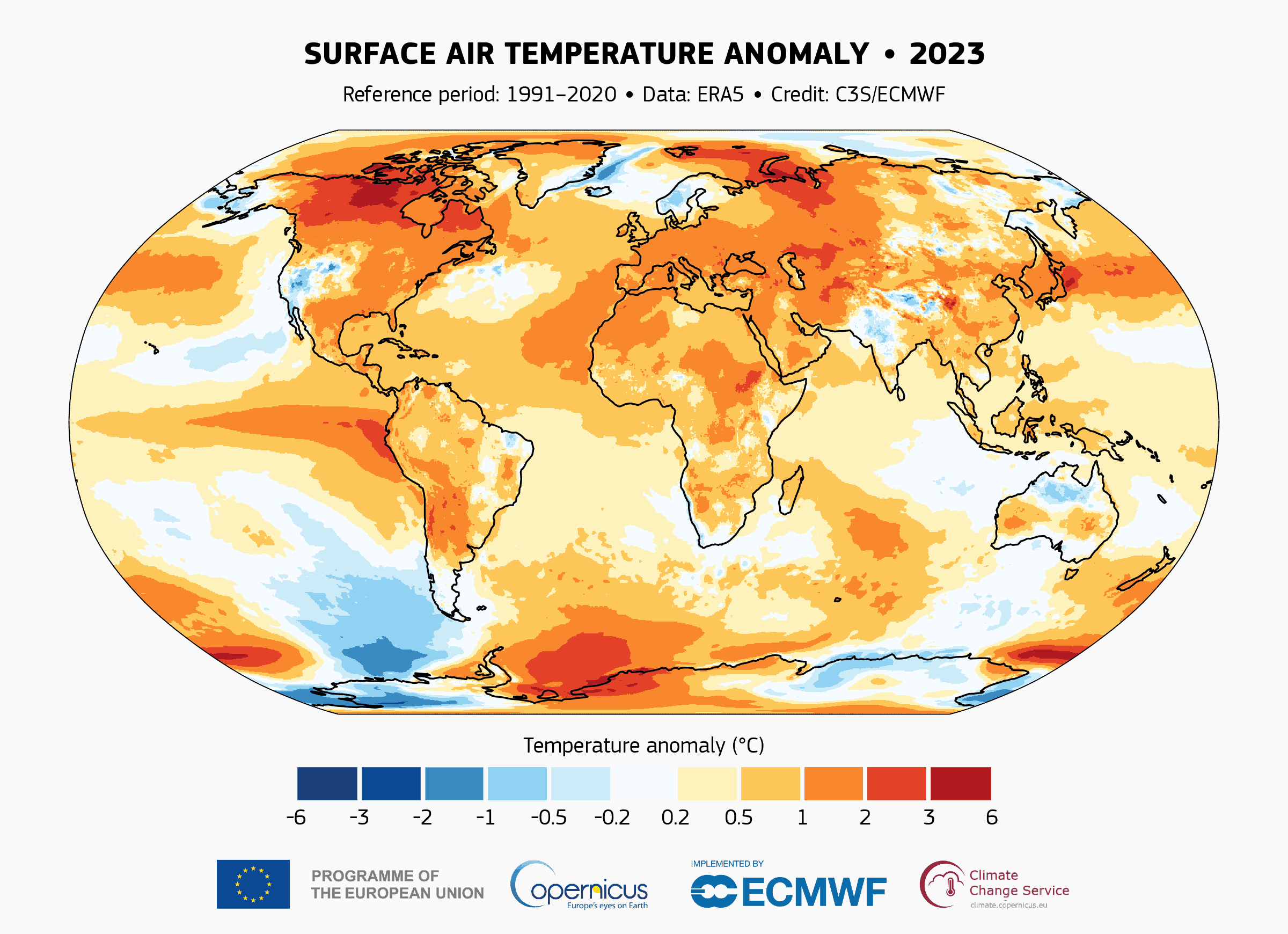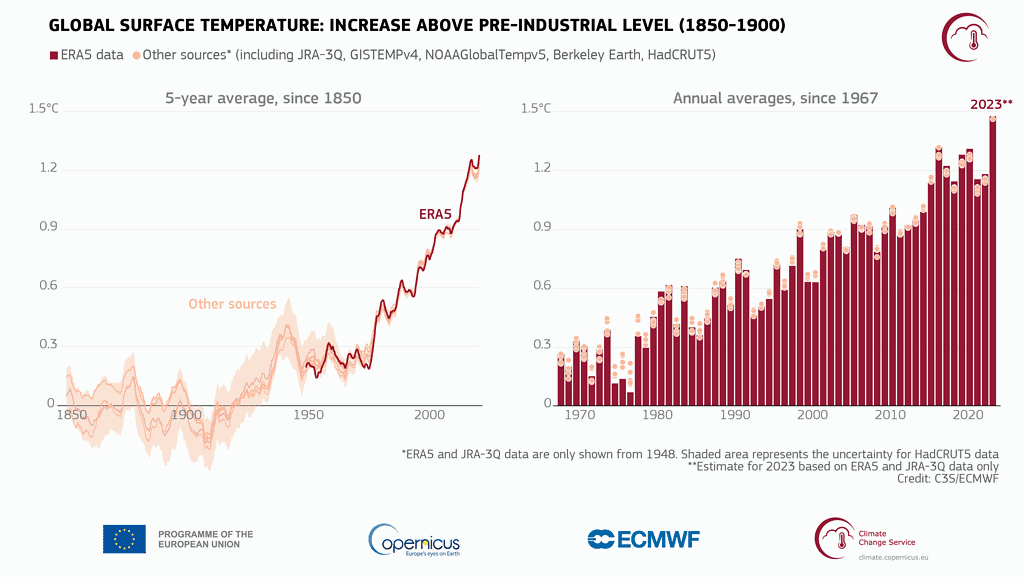Unprecedented global temperatures led 2023 to become the warmest year on record, overtaking 2016 by a large margin, the European Union’s Copernicus Climate Change Service (C3S) said. Last year was about 1.48 °C warmer than the period from 1850-1900, before the extensive burning of fossil fuels.

While the figure is very close to the 1.5 °C temperature target set up in the Paris Agreement, it doesn’t mean we have already surpassed it. The global temperature would need to be above 1.5 °C for a period of at least 20 years for this to happen. Still, it’s a worrying sign that we are far from doing enough to tackle the climate crisis.
Scientists were expecting the record to be broken in 2023 after many months of extreme weather events and high temperatures. In fact, since June, every month was the world’s hottest on record when compared with the same month in any previous year. Also, close to 50% of days were 1.5 °C warmer than the 1850-1900 period.
“The extremes we have observed over the last few months provide a dramatic testimony of how far we now are from the climate in which our civilisation developed,” Carlo Buontempo, the director of the Copernicus Climate Change Service, said in a recent news release. “This has profound consequences for the Paris Agreement.”
Last year saw a growing number of extreme weather events around the world, from drought and then flooding in East Africa to wildfires and heatwaves in North America. Many of these events would have been very rare or impossible without the climate crisis. They happened at unusual times of the year and on scales never seen before.
The average temperature last year was 0.17 °C higher than the previous highest annual value in 2016 — a significant increase in climate terms. Scientists link this to greenhouse gas emissions that continue to rise, boosted by the El Niño climate phenomenon. Last year saw a transition to El Niño, which comes with unusual warming of surface waters.


Global carbon emissions last year are likely to have reached 36.8 billion metric tons, a 1.1% increase from 2022, according to the Global Carbon Budget report. The UN panel of climate scientists, the IPCC, has said emissions need to go down by 43% by 2030 in order to deliver on the Paris Agreement target — something difficult to achieve.
“The record warm global temperatures and devastating extreme weather events of 2023 are a warning that such events will continue to get worse until we transition away from fossil fuels and reach net-zero emissions,” Ed Hawkins, professor of climate science at the University of Reading in the UK, said in a news release this week.
Climate scientists believe that 2024 could be another record-breaking year, with the possibility of exceeding 1.5 °C across the entire calendar year for the first time. And, while countries agreed at the UN climate change conference COP28 to transition away from fossil fuels, time is running out to take further action on the climate crisis.
